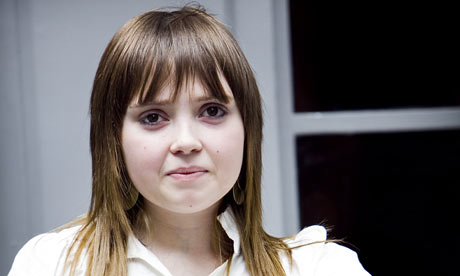
Her life used to consist of endless rounds of medicines, long stays in hospital and uncertainty about how much longer she would live for. Now 16-year-old Hannah Clark – the first person in Britain to receive someone else's heart but later have it removed, only for her own to unexpectedly recover – relishes typical teenage pursuits such as running, shopping and walking her dog.
Born with a rare heart condition that could easily have killed her, Hannah, from Mountain Ash near Cardiff, was two when she joined an exclusive club by having a five-month-old girl's heart grafted on to her own.
For 10 and a half years she had two hearts – "piggybacking", doctors call it – although it was the donated heart that kept Hannah alive while her original organ took a long rest.
Complications meant the second heart had to be taken out when she was 12, and doctors were unsure what would happen. No one had survived such a procedure.
Now, three and a half years later, one of the most dramatic success stories in recent medical history has just done her GCSEs, started her first part-time job at a kennels and is preparing for a family holiday by the seaside – all powered by a heart which, for her first 12 years, doctors thought could not keep her alive.
Confirmation of Hannah's highly unusual success in recovering from cardiomyopathy, which affects the heart's muscle, comes today in the form of a long article in the Lancet medical journal.
In complicated medicalese, it tells an amazing story of survival. The authors, who include renowned heart surgeon Sir Magdi Yacoub, testify to the teenager's feat.
Yesterday the girl who used to have two hearts negotiated another obstacle: a press conference to tell her story.
At times the constant whirring of cameras, barrage of questions and sheer number of people left her lost for words, or in tears.
How specially does she treasure life now, someone asked? "I can't say," replied Hannah. It took her mother, Liz, to answer: "She just loves life. She doesn't think about tomorrow; she thinks about today, and lives life to the full. She gets up every morning smiling, and it's very, very rare to see Hannah upset.
"She doesn't go to bed until three o'clock in the morning sometimes … that's how much energy she's got. She couldn't have done that before."
Yacoub, of the Harefield hospital in west London, said her recovery had given the many doctors involved in her care insights into many things, such as transplant surgery and the use of immunosuppressant drugs, which must be taken to minimise the chances of a patient's body rejecting a new organ.
Before Hannah, no one's own heart had ever recovered enough to keep them alive, although doctors did think it was a theoretical possibility that a weak heart could somehow become strong.
Among the lessons learned from Hannah, Yacoub said, was that "the possibility of recovery of the heart is just like magic. A heart that was not contracting at all, after a time we put the new heart to pump next to it, and do its work. Now it is functioning normally. That is going to be very fundamental in helping people in the future."
Born in 1993, Hannah underwent what surgeons call heterotopic cardiac transplantation, or "piggybacking", two years later. However, the immunosuppressant drugs led to her developing an incurable, rare cancer that kept returning despite repeated bouts of chemotherapy.
But the doctors' strategy, to reduce the doses of immunosuppressants, led to Hannah's second heart failing. In February 2006, they decided they had no choice but to take it out, or risk Hannah's death. Three and a half years of constant improvement, and Hannah's gloriously normal life, have proved enough for them to pronounce the reversal of her transplant an unqualified, if unexpected, success.
Her father, Paul, recalled how when she was being treated at London's Great Ormond Street hospital the family was told that Hannah was about to die.
"They called us in and said that a tumour had affected her spinal cord and was putting pressure on her brain, and was going to kill her. A nurse told us that she only had 12 hours to live. I said, 'Well, you believe what you believe and I'll believe what I believe'. For some reason, the next day she was OK."
Their experience has made the Clark family advocates of presumed consent, a policy – supported by Gordon Brown and chief medical officer Sir Liam Donaldson – that would see everyone in the UK presumed to be in favour of donating their organs after death. Supporters believe that, with 1,000 people dying every year due to shortages, the move would greatly increase the supply of organs. Yacoub said that, having previously been opposed to presumed consent, he now backed it.
Survival story
1 May 1993 Hannah Clark born in Wales.
July 1995 Aged two, Hannah undergoes "piggybacking", in which a donor heart is joined with her own. She improves for four and a half years.
August 2001 Hannah is found to have a rare form of cancer caused by immunosuppressant drugs that stop her body rejecting the new organ.
2001-2006 Her cancer keeps recurring. Doctors deem it incurable.
February 2006 Doctors decide to remove the donor heart.
14 July 2009 Hannah's story reported in the Lancet.

